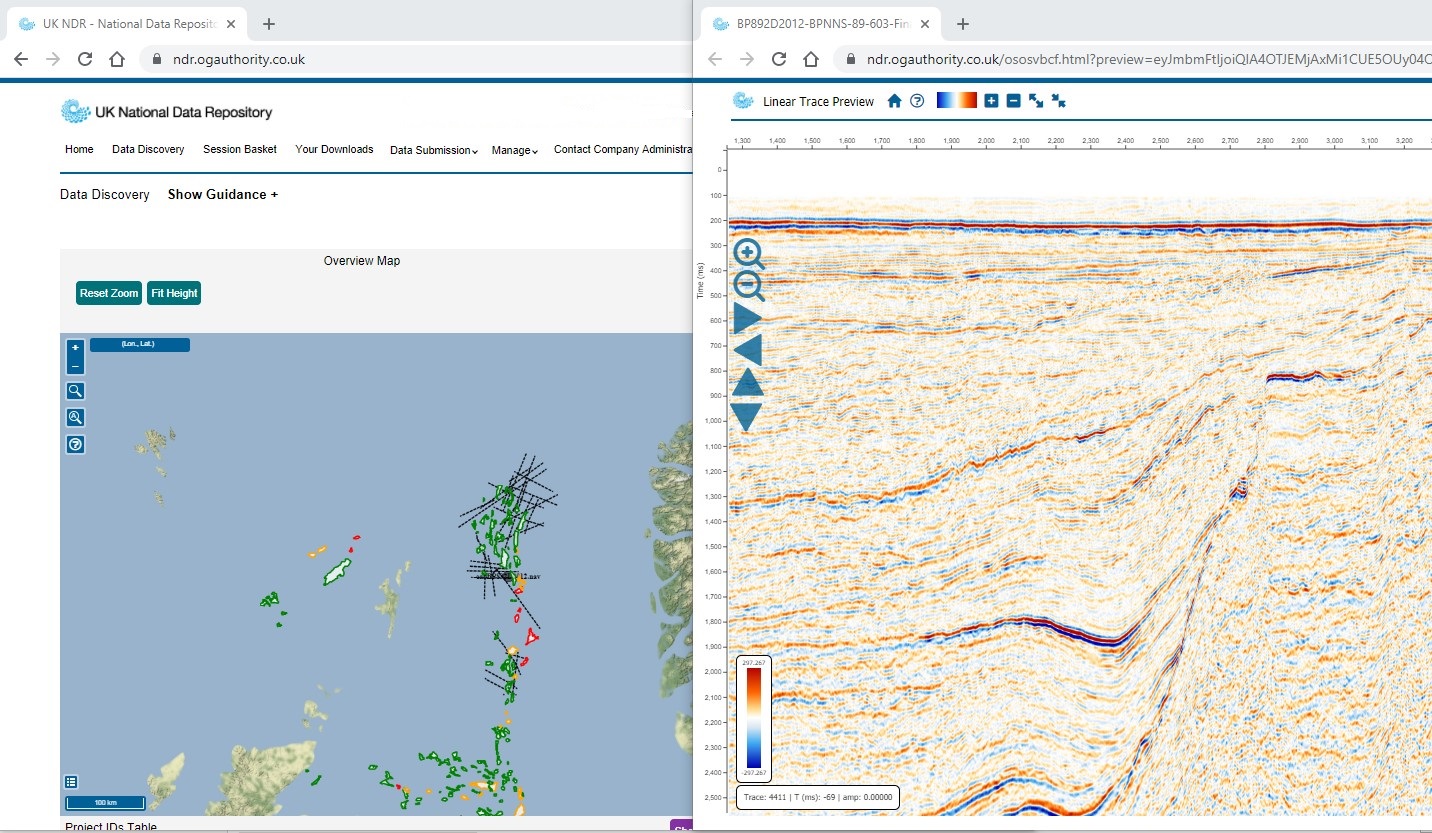
A massive revamped OGA data platform is being launched to “unlock” new opportunities in CCS, hydrogen and “environmentally sustainable” oil and gas projects in the North Sea.
The Oil and Gas Authority (OGA) said its new and improved National Data Repository (NDR) will make information available from 50 years of UK activity, helping drive the region’s net zero push.
The regulator launched the first NDR in 2019 with 100 terabytes of data, but the coming months will see the revamped version climb to 500TB and then it will push well beyond that to a huge four petabytes over the next five years.
Computer weekly and Deloitte analytics have estimated a single petabyte to be the equivalent of 745million floppy discs, weighing around 13,400 tonnes.
A key difference is that this new data will be interpretation-ready and viewable before it is downloaded, and all of it will be high quality for machine learning and AI use.
Nic Granger, director of corporate and chief financial officer at the OGA, said: “Investment decisions are coming under increased scrutiny, so the ability to demonstrate responsible investment is key.
“The kind of reliable data that the NDR will provide will ensure that global investors make the right decisions, using timely and transparent data to make the appropriate investment for them.”
The NDR will house information on potential carbon storage and storage (CCS) sites, as well as opportunities like domestic natural gas production which is a feedstock for blue hydrogen production, with related emissions stored via CCS.
“Essentially, the data that’s in there gives us a greater understanding of what’s in the subsurface, whether that’s for CCS technologies or the future of oil and gas as well,” she said.
With recent political protests to new oil and gas exploration, which was the focus of the original NDR in 2019, Ms Granger was asked whether there remains an appetite for this going forward.
“I think the appetite is still there for data-driven decisions which is the starting point for the NDR”, she said.
“Oil and gas is not being switched off, it still provides around three-quarters of our UK energy consumption.
“It remains needed for heat, power and transportation. Domestic gas production has about half the carbon footprint of imported LNG so as long as it makes sense to produce our own, as long as it’s needed.
“So while it can’t be turned off, it can be produced much, much cleaner and that’s our focus and that’s what the NDR will help us and the industry do as we work towards net zero in 2050.”
UK Energy and Clean Growth Minister Anne-Marie Trevelvan welcomed the NDR’s relaunch, stating: “The National Data Repository will provide greater accessibility to the data needed to support the UK’s oil and gas sector in the transition to a low-carbon energy future, including identifying sites for carbon storage, which is key to us meeting our climate commitments.”
Russ Gilbert, wells manager at Storegga, which is behind the Acorn CCS project in Aberdeenshire, said the data means “faster and improved ranking of sites for CO2 storage in addition to minimisation of containment risk via comprehensive reservoir and well integrity characterisation and assessment”.
The NDR – which can be accessed at https://ndr.ogauthority.co.uk/ – is available free of charge, with organisations able to download as much as three terabytes per calendar month without charge, after which further data can be purchased at a minimal charge.
Recommended for you


 © Supplied by Oil and Gas Authorit
© Supplied by Oil and Gas Authorit © OGA
© OGA